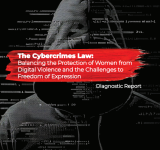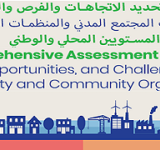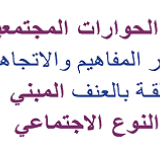Women and Violent Radicalization in Jordan
Jordan remains stable amidst regional tensions but is not immune to radicalization threats. Preventing violent extremism and integrating the participation and concerns of women in peace and security has become a priority for the Government of Jordan,especially as it fulfills its commitments to UN Security Council resolutions 1325 and 2242 on women,peace and security.
UN Women Jordan and the Jordanian National Commission for Women commissioned Al-Hayat Center for Civil Society Development - RASED and Search for Common Ground conducted a study on the gendered dimensions of radicalization in Jordan. The research focused on the perceptions of men and women of radicalization in their communities,the risks that women and girls may face from radicalization,the roles that women occupy in both the radicalization and deradicalization processes,and whether current efforts at deradicalization are gender-sensitive.
The study found that both men and women perceive radicalization to be occurring in their communities and in universities. The majority of respondents also believed that women are at greater risk from radicalization than men and that it could exacerbate existing limitations on women’s freedom and access to their rights. The study also examines the role of religious leaders and mothers in radicalization. The findings from the study inform the development of Jordan’s National Action Plan on Women,Peace,and Security as well as future programming efforts aimed at preventing violent extremism.


